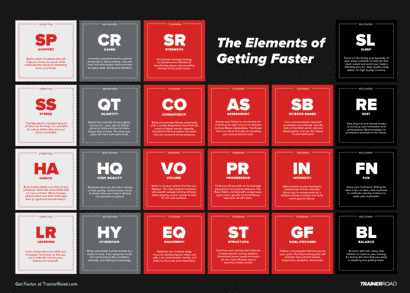Recovery: The Elements of Getting Faster
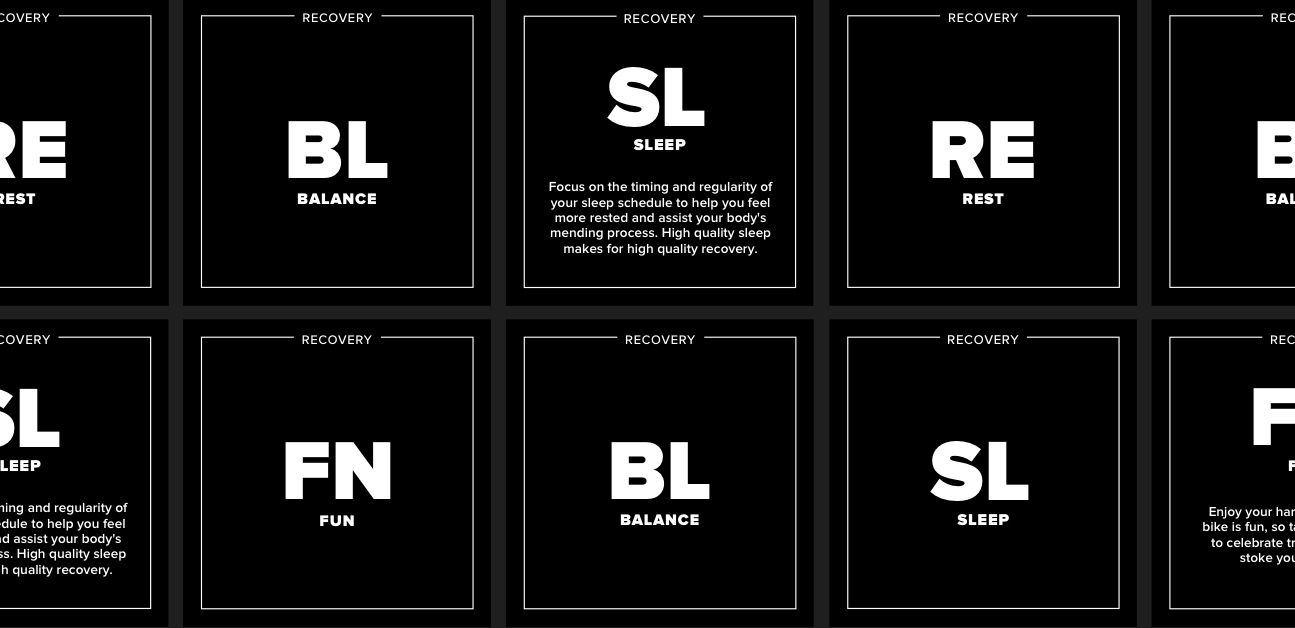
It’s easy to think of recovery as secondary to training, or as a side-effect of the hard work you do on the bike. In truth, it’s actually the most directly impactful part of the training process. Only through recovery does your body actually get stronger, and only through rest do you get faster. In this installment of our ongoing Elements of Getting Faster series, we take a look at the 4 elements of recovery.
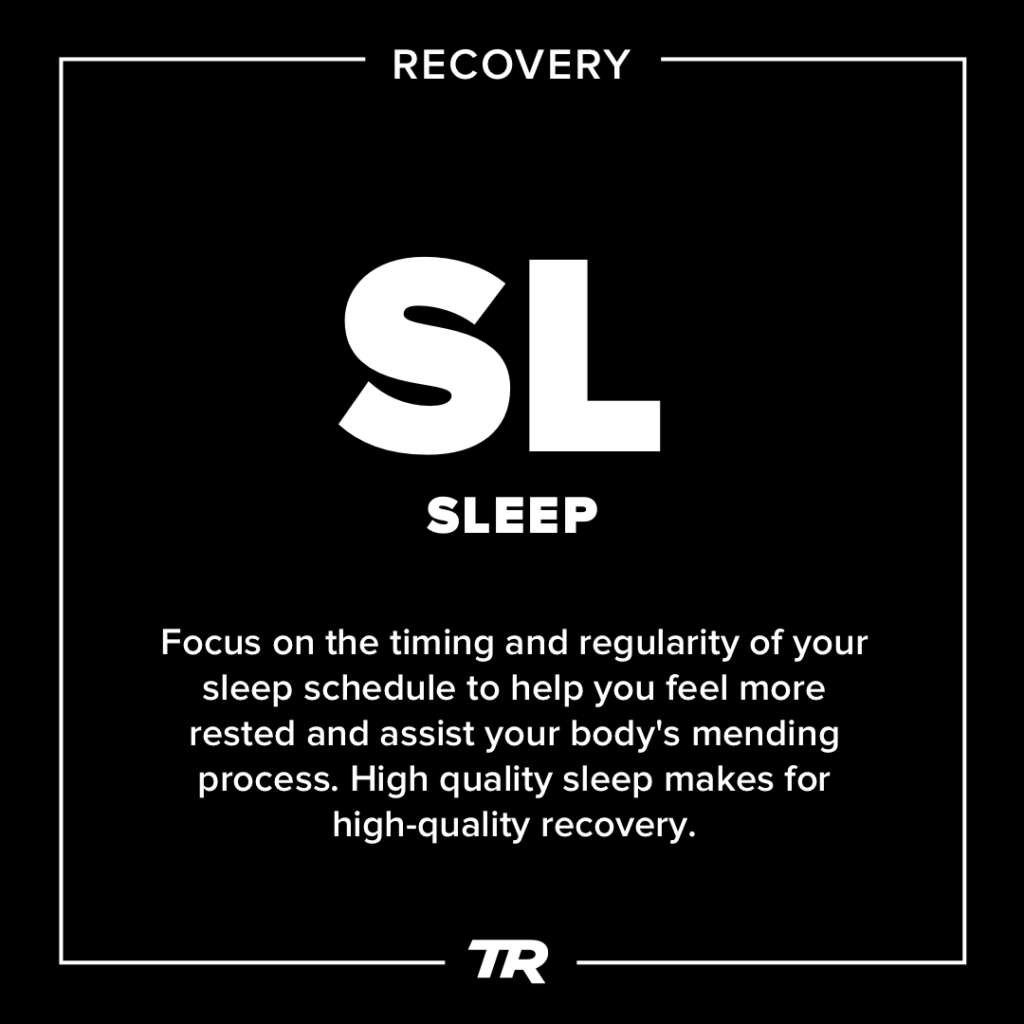
Sleep
The point of training is to push your body beyond its limits to stimulate supercompensation. In other words, training causes stress that triggers adaptations in response, leaving you stronger than before. The structural changes involved in adaptation largely occur during sleep. While sleep might feel like a passive period of inactivity, in reality it’s during sleep when you get better at riding your bike.
Any athlete that wants to succeed thus needs sleep, and lots of it. Experts recommend 8 hours of sleep a night whenever possible, and many athletes prefer even more. But it’s unfortunately not always easy or convenient to get as much sleep as you should. With busy schedules and complicated lives, most of us let sleep fall by the wayside at least occasionally, and our performance suffers as a result.
Anything you can do to sleep better and longer can help you get faster. Tracking your sleep and sticking to a routine can be hugely beneficial, as your body naturally prefers a predictable and regular sleep schedule. Adjust the temperature in your room down slightly and avoid looking at computers or phones for about 90 minutes before bed. We all chase marginal gains on the bike, but improvements in sleep can make more than a little difference.
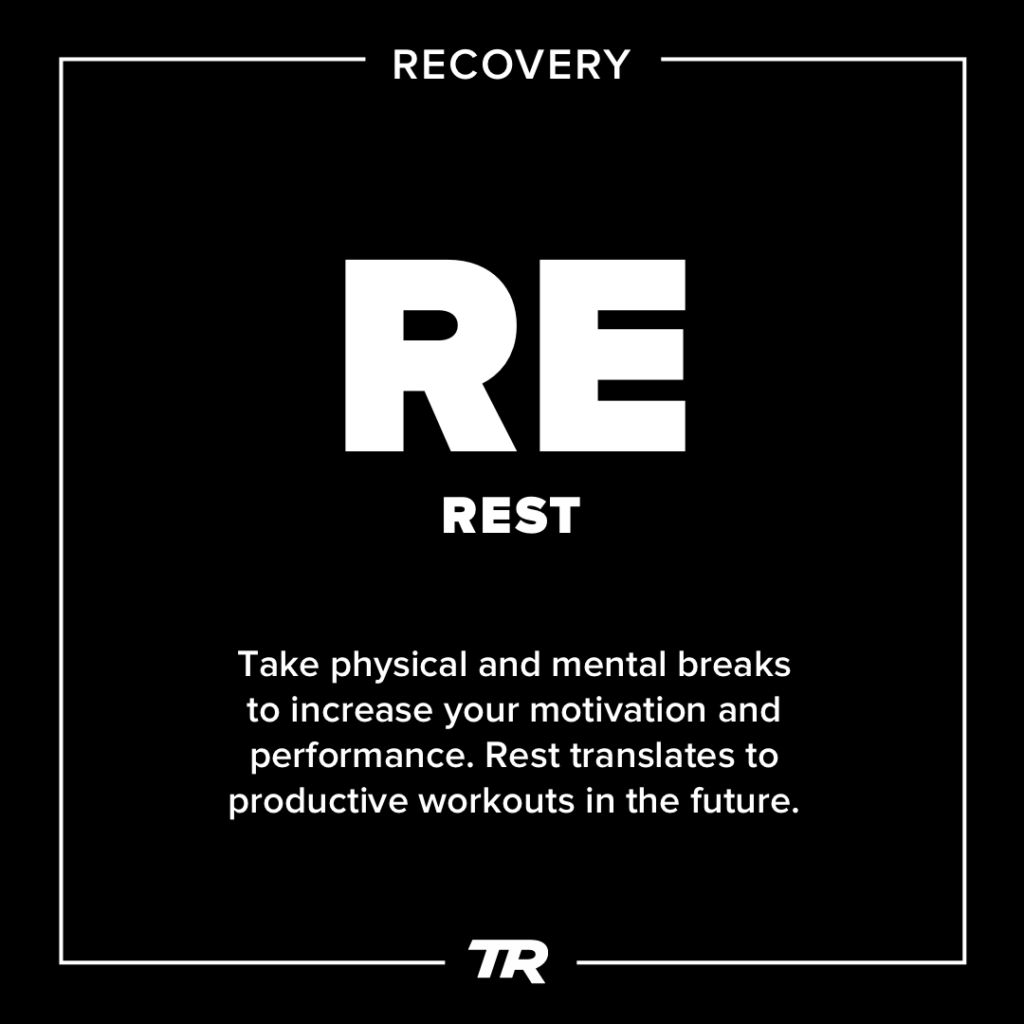
Rest
Any good training plan incorporates rest. Rest takes the form of regular days off, occasional weeks of reduced intensity, and longer offseason periods of a month or more. Like sleep, rest might seem passive but it’s actually an active and crucial process. In fact, how seriously you treat your rest can make or break your training over both the short- and long-term.
Periodized training works because it is progressive– stress builds over time and gradually establishes a new equilibrium, and by following the fatigue of a hard effort with an easier day your body can recover just enough to tackle the next tough workout. Occasional rest weeks allow for more significant recovery, and offseasons let the body shake the chronic stress of a long training season. Skipping any of these rest periods can lead to stagnation and plateauing, and if rest is chronically ignored it can even lead to overtraining.
The key to rest is to follow your training plan. Off-days and easy weeks are included for a reason, and by treating them as seriously as you treat your hard workouts you set yourself up for success. Maximize your recovery off-bike by reducing life stresses whenever possible, and be especially conscious of recovering after periods of injury or illness. The long-term gains of letting yourself recover fully always outweigh the short-term perils of lost fitness.
Rest Resources
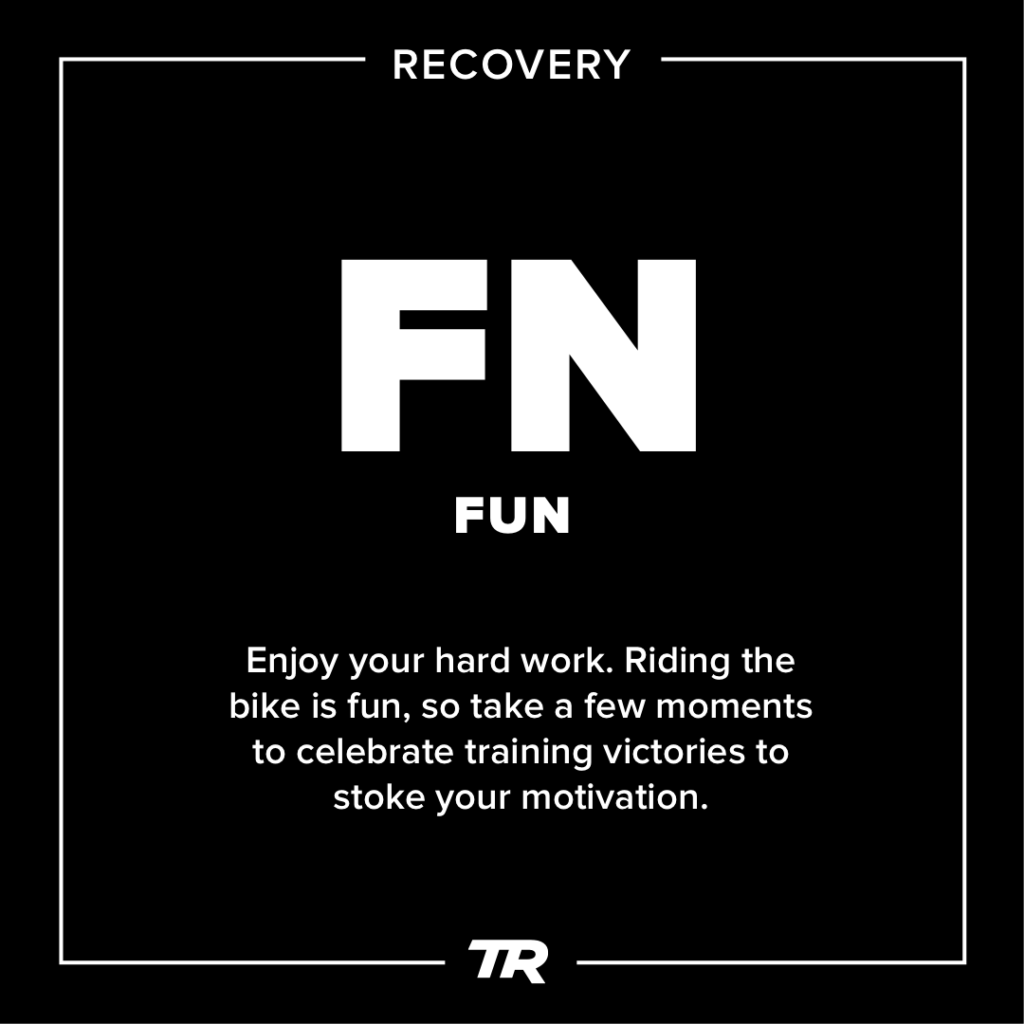
Fun
No matter how seriously you take your training, there’s a very good chance you don’t race for a living. This is a hobby, and while training isn’t always pleasurable it really should be fun. Celebrate improvements when you see them, and reward yourself for your hard work. You earned it, and you can use positive affirmation to keep pushing forward.
There are some other easy strategies to make your workouts more enjoyable. Group Workouts are an excellent way to add some camaraderie to your training. They’re a great way to push each other during challenging workouts and ramp tests, and conversation can help pass the time on easy rides. Outside Workouts are another way to switch things up, letting you stay consistent with your training outdoors in the fresh air.
Sometimes, having fun just means not overthinking things. Your training plan does that for you, and you can relax and follow the scheduled workouts knowing that you’ll get faster if you stay consistent. Also, don’t put too much pressure on yourself to train perfectly. If you decide to replace a workout with a group ride or unstructured cruise now and then it won’t be the end of the world. Consistency is key, but if an occasional deviation from the plan is how you keep yourself motivated, you’ll likely end up faster for it.
Fun Resources
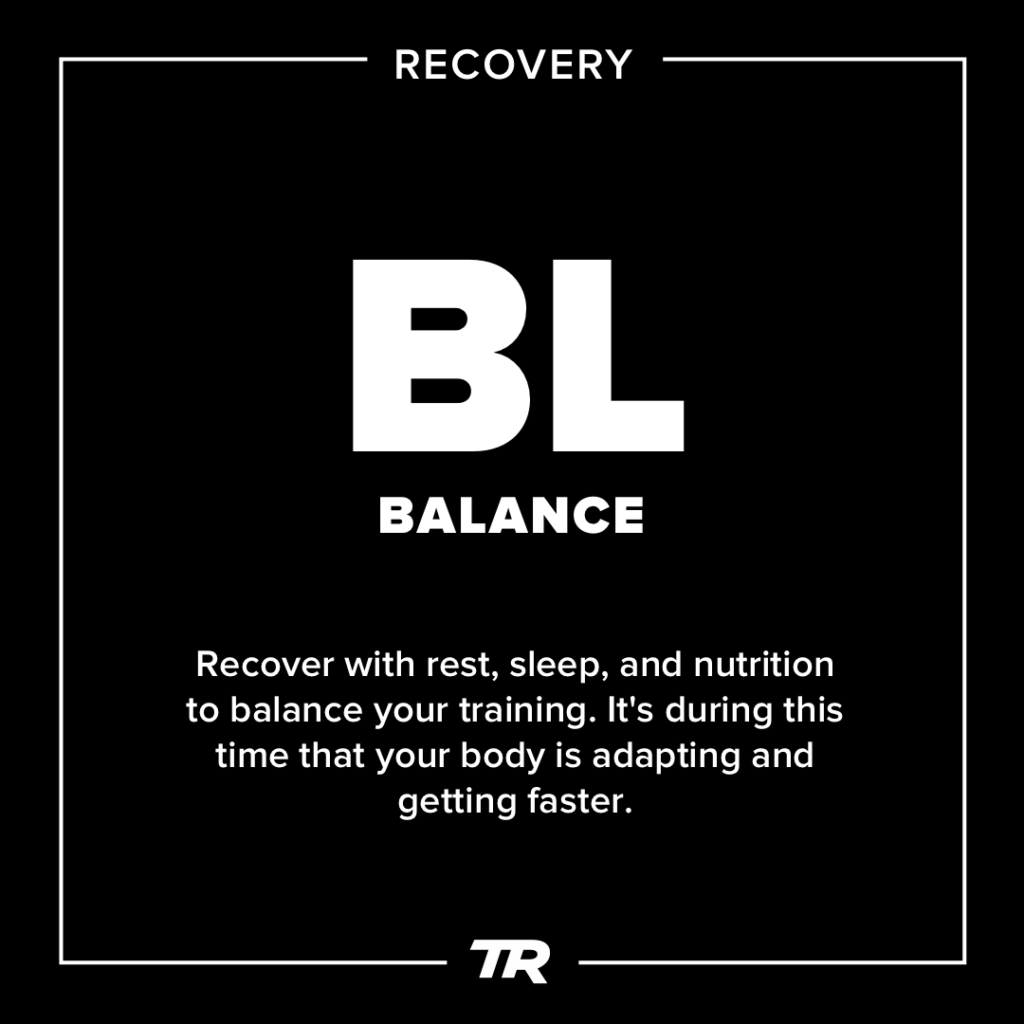
Balance
Related to fun, the ability to balance a training schedule with your real life is an important component of your success as an athlete. It’s challenging for everyone- no one has unlimited time to train, and very few of us get the balance right every time. Focus on the things you can control, prioritizing your training as a healthy outlet. After all, a healthier you can be more present in your family and work life, and in that case everyone wins.
Balance Resources
Don’t have the Elements of Getting Faster? Download the complete PDF for all the elements, details, and descriptions so you can be sure to implement them into your training.
